Zlatko Dalić Announces Final 2022 World Cup Croatia Squad
November 9, 2022 - The final 2022 World Cup Croatia squad was announced today.
Croatia national team coach Zlatko Dalić announced the final 2022 World Cup Croatia squad two weeks before Croatia's first match in Qatar. The final list of 26 players was announced at a press conference in Zagreb.
Recall Hajduk goalkeeper Lovre Kalinić was not included in the wider list due to injury.
Goalkeepers Kotarski and Labrović, defenders Ćaleta-Car and Pongračić, midfielders Mišić and Ivanušec, and forwards Čolak and Brekalo were dropped from the final list and are not going to Qatar from the wider list.
National teams can have between 23 and 26 players on the final list of players for the World Cup.
The Croatian Football Federation (HNS) must submit the final list of players to FIFA on November 14. After that, it is possible to change players up to 24 hours before the first match in case of injury.
2022 World Cup Croatia Squad
Goalkeepers: Dominik Livaković, Ivica Ivušić, Ivo Grbić
Defenders: Domagoj Vida, Dejan Lovren, Borna Barišić, Josip Juranović, Joško Gvardiol, Borna Sosa, Josip Stanišić, Martin Erlić, Josip Šutalo
Midfielders: Luka Modrić, Mateo Kovačić, Marcelo Brozović, Mario Pašalić, Nikola Vlašić, Lovro Majer, Kristijan Jakić, Luka Sučić
Strikers: Ivan Perišić, Andrej Kramarić, Bruno Petković, Mislav Oršić, Ante Budimir, Marko Livaja
Croatia plays their first match on Wednesday, November 23, at 11 am Croatia time against Morocco. On Sunday, November 27, Croatia meets Canada, and on Thursday, December 1, Croatia plays Belgium in their final Group F match.
To follow the latest sports news in Croatia, follow TCN's dedicated page.
Croatia Beat Denmark (0:1), Adds First Three Points in UEFA Nations League!
June 10, 2022 - In their third match in the UEFA Nations League, Croatia beat Denmark in Copenhagen with a goal from Mario Pašalić and took their first three points, which now places them third in the table with 4 points, tied with Austria!
In the third fixture of group A, Croatia visited Denmark in Copenhagen hoping to get their first three points after losing to Austria in Osijek (0:3) and drawing against France in Split (1:1). The coach of the Croatia national team, Zlatko Dalić, has prepared a starting eleven with quite a few changes compared to the two previous games. The last time the two teams faced each other was at the 2018 FIFA World Cup in Russia, where both drew 1:1 at the end of 120 minutes. Croatia won the match by penalties.
Croatia's starting eleven to face Denmark: Dominik Livaković; Šime Vrsaljko, Martin Erlić, Josip Šutalo, Josip Juranović; Kristijan Jakić, Marcelo Brozović, Luka Ivanušec, Mario Pašalić, Mislav Oršić; Andrej Kramarić.
Denmark starting eleven: Kasper Schmeichel; Daniel Wass, Joachim Andersen, Andreas Christensen, Joakim Maehle; Pierre Emile Hojbjerg, Thomas Delaney, Christian Eriksen; Andreas Olsen, Andreas Cornelius, Mikkel Damsgaard.
Match summary:
Denmark was superior to Croatia in the first half. There was not a big difference in possession of the ball between the two teams, but the Danish offense created more danger in the first 45 minutes. It is worth noting the great defensive work of the two center backs Josip Šutalo, who made his debut today, and Martin Erlić. Both the Croatian midfield and offense couldn't find a way to create much danger in the Danish area.
In the second half, the presence of Luka Modrić and Mateo Kovačić brought more ideas to the Croatian team, who were able to control the ball more calmly and therefore began to find ways to create clearer scoring chances. Finally, a goal from Mario Pašalić in the 69th minute would give Croatia victory and their first victory in the UEFA Nations League, curiously, after adding only one point from their two home games. Croatia climbs to third place in the table tied on points (4) with Austria. Despite the defeat, Denmark remains in the lead with 6 points.
Match highlights:
The first 5 minutes of the match were of shared possession between both teams. In the 6th minute, Cornelius took advantage of a poor clearance by the Croatian defense for Denmark's first attempt on goal, but his shot went high.
In the 8th minute of the match, Cornelius received a yellow card for dangerously contesting a ball with Croatian goalkeeper Livaković, who had to be treated by the doctors for a long time.
In the 11th minute, Joakim Maehle was left one on one with Livaković after a very good collective play. However, his shot went wide for the Croatian goal.
The first goal attempt for Croatia came from Dinamo Zagreb midfielder Mislav Oršić in the 13th minute, who tried to finish off a good Croatian counterattack, but his shot went high.
In the 40th minute, Cornelius again found a great opportunity to score after an error by Kristijan Jakić. The Danish forward put the ball to Livaković's right post, but the Croatian goalkeeper responded with a great save.
Three minutes later, the referee disallowed a goal by Cornelius, after a foul by Maehle on Vršaljko when they were contesting for the ball inside the Croatian box.
The referee added 2 more minutes to the first half, and both teams went into the break tied 0:0. Possession at the end of the first half was 54% for Denmark and 46% for Croatia.
After the break, Dalić brought in three players. Josip Stanišić replaced Šime Vrsaljko, Mateo Kovačić replaced Kristijan Jakić, while Luka Ivanušec left the field for Luka Modrić
Luka Modrić, after a great individual play inside the Danish area in the 56th minute, crossed the ball into the small area but none of his teammates could convert the chance.
In the 58th minute, Mislav Oršić was replaced by Nikola Vlašić.
In the 60th minute, Andrej Kramarić had a great opportunity to convert Croatia's first goal, with a powerful first-touch kick inside the box, but Kasper Schmeichel made an amazing save. However, the referee invalidated the play due to a previous offside.
In the 61st minute, the Danish team made its first three substitutions of the match, all at once. Rasmus Kristensen came on for Daniel Wass, Jonas Wind for Andreas Cornelius, and Martin Braithwaite for right-winger Mikkel Damsgaard.
In the 63rd minute, Luka Modrić found a space to shoot outside the box, but goalkeeper Schmeichel had no problem stopping his attempt.
In the 67th minute, Danish defender Joachim Andersen received his team's second yellow card after a violent tackle on Andrej Kramarić. It could have been a red card.
A free throw was awarded after the foul. Luka Modrić put the ball into the box, and a clear attempt by Stanišić was deflected by a Danish defender.
The first goal of the match came for Croatia on the following corner kick in the 69th minute. Luka Modrić played short and found Brozović, who put a dangerous cross into the area that was first headed by Kramarić, and Mario Pašalić would find the ball at his feet to score Croatia's first goal.
In the 75th minute, Stanišić would receive the first yellow card for Croatia as he attempted to stop Martin Braithwaite.
Christian Eriksen took the free-kick into the box but Braithwaite sent it well past Livaković's goal.
In the 77th minute, Andrej Kramarić was replaced by Ante Budimir in a tactical substitution.
In the 82nd minute, Martin Braithwaite again missed a great opportunity for Denmark.
In the 83rd minute, Yussuf Poulsen came on to replace Andreas Olsen in the Danish team.
Three minutes later, after a great collective play, Marcelo Brozović found an opportunity to kick the ball outside the Danish box, but his shot went close to Schmeichel's right post. The referee booked Ante Budimir for a foul on that play. It was the second yellow card for Croatia.
A minute later, in the 87th minute, the Danish team found the equalizer after a tangled play in the Croatian area, but the goal was disallowed for offside.
In the 90th minute, Yussuf Poulsen, who barely played ten minutes, was replaced by Robert Skov due to injury.
The referee added 5 more minutes to the match.
Brozović would have one more try in the 94th minute, but his shot went high. The referee ended the match in the 95th minute and Croatia took their first three UEFA Nations League points away from home.
Croatia will play France in Paris on June 13th.
For more, make sure to check out our dedicated sports section.
World Cup and Croatia: 5 Reasons to Dream of Glory (Again)
April 3, 2022 - The Vatreni already know their rivals for the biggest football event to be held in Qatar this year, and there are reasons to believe that Modrić and company can add yet another page to the wonderful history between the World Cup and Croatia.
There is no easy rival in the World Cup, and this should be well known by now. It doesn't matter what path took you to the biggest stage in football, once you're there all you think about is winning and advancing as far as you can. If not, ask Croatia in 1998 and twenty years later, in 2018. To qualify for the World Cup in France, Croatia had to play a two-game playoff against Ukraine, after finishing second in their qualifying group behind Denmark. They beat the Ukrainians 3-1 on aggregate, and destiny led them to finish third in their first-ever World Cup finals.
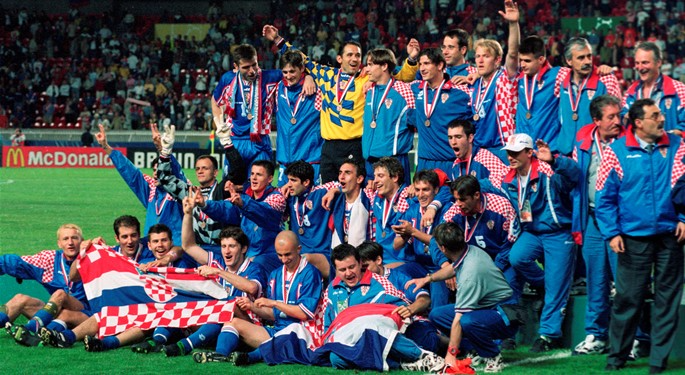
The Croatian national team, led by ''Ćiro'' Blažević, reached third place in France '98. (Image: Croatian Football Federation)
Unlike other national teams, Croatia's qualifying history has not been constant. After the success in France, Croatia qualified directly for the World Cups in Korea-Japan in 2002, and Germany in 2006. However, they would miss the World Cup in South Africa in 2010 and again would need the playoffs to qualify for the World Cups in Brazil in 2014 and the most recent in Russia in 2018. Little or nothing Messi's Argentina, host Russia or Harry Kane's England would have imagined, that the Croats did not travel to Russia on vacation. They had a mission, and this led them to overcome what was done by Šuker, Boban, or Prosinečki twenty years before that. Croatia, defying the odds, reached the final of a World Cup.
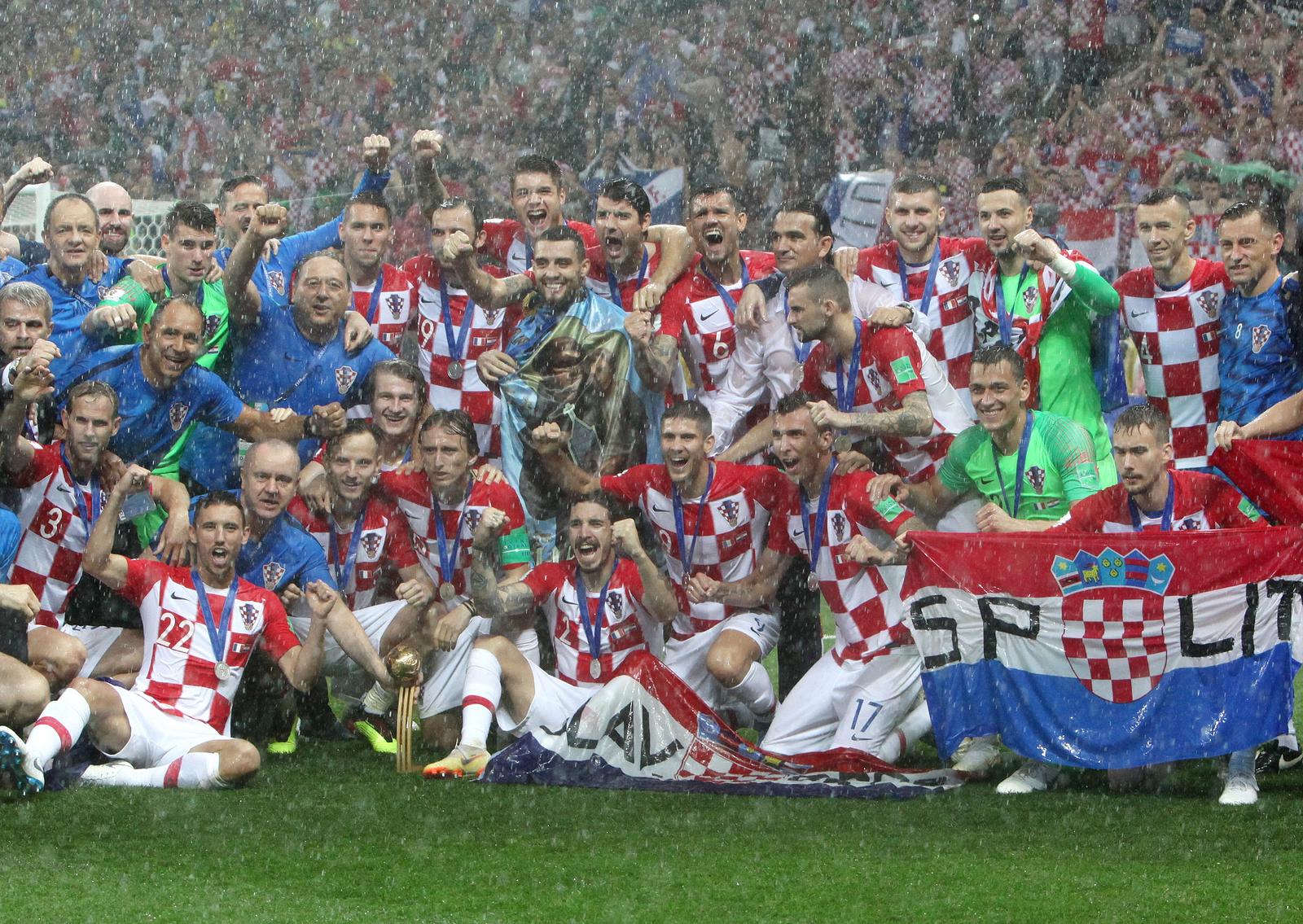
Croatia could not beat France in the World Cup final in Russia, but the second place achieved will always be remembered. (Photo: PIXSELL)
Can Croatia repeat a memorable feat? We think so, and here are 5 reasons why you should too.
Group draw
Two days ago, the draw for the group stage of the World Cup in Qatar was held. Croatia, despite coming second in the previous World Cup and finishing first in their qualifying group, was placed in Pot 2 of the draw. Those led by Dalić could not avoid playing against teams such as Brazil, France, Argentina, or Spain, but they could avoid others such as the Netherlands or Germany, also in Pot 2. Thus, the chances for Croatia to be put in a theoretical ‘‘group of death’’ were low.
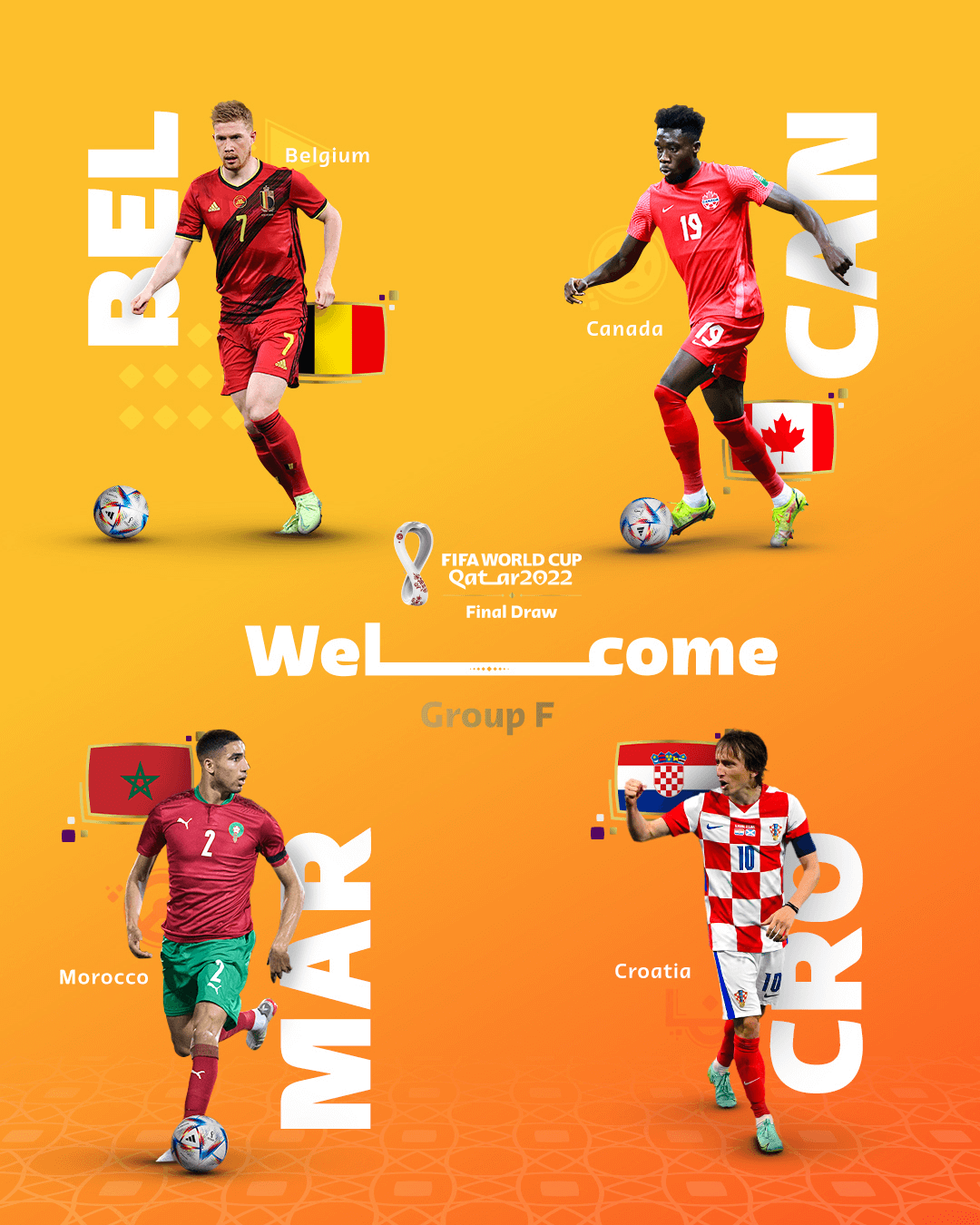
Image: @FIFAWorldCup/Twitter
Croatia will be in Group F, with the Belgian team as the leader, and where they will be joined by Canada and Morocco. I would like, at this moment, to remember the first thing I said at the very beginning: there is no easy rival in the World Cup. Oh yes, I've read loads of people on social media saying "not bad" or that it is an "affordable group for Croatia". The reality is that we are up against Morocco, a team that has matured since the last World Cup in Russia and one of the toughest in Africa. While the absence of Hakim Ziyech (Chelsea) may sound motivating for many, the Moroccans still have a group of talented players such as Yassine Bounou (Sevilla), Achraf Hakimi (PSG), Sofyan Amrabat (Fiorentina), Adel Taarabt (Benfica), Youssef En-Nesyri (Sevilla), or the very young Ez Abde, from Barcelona B.
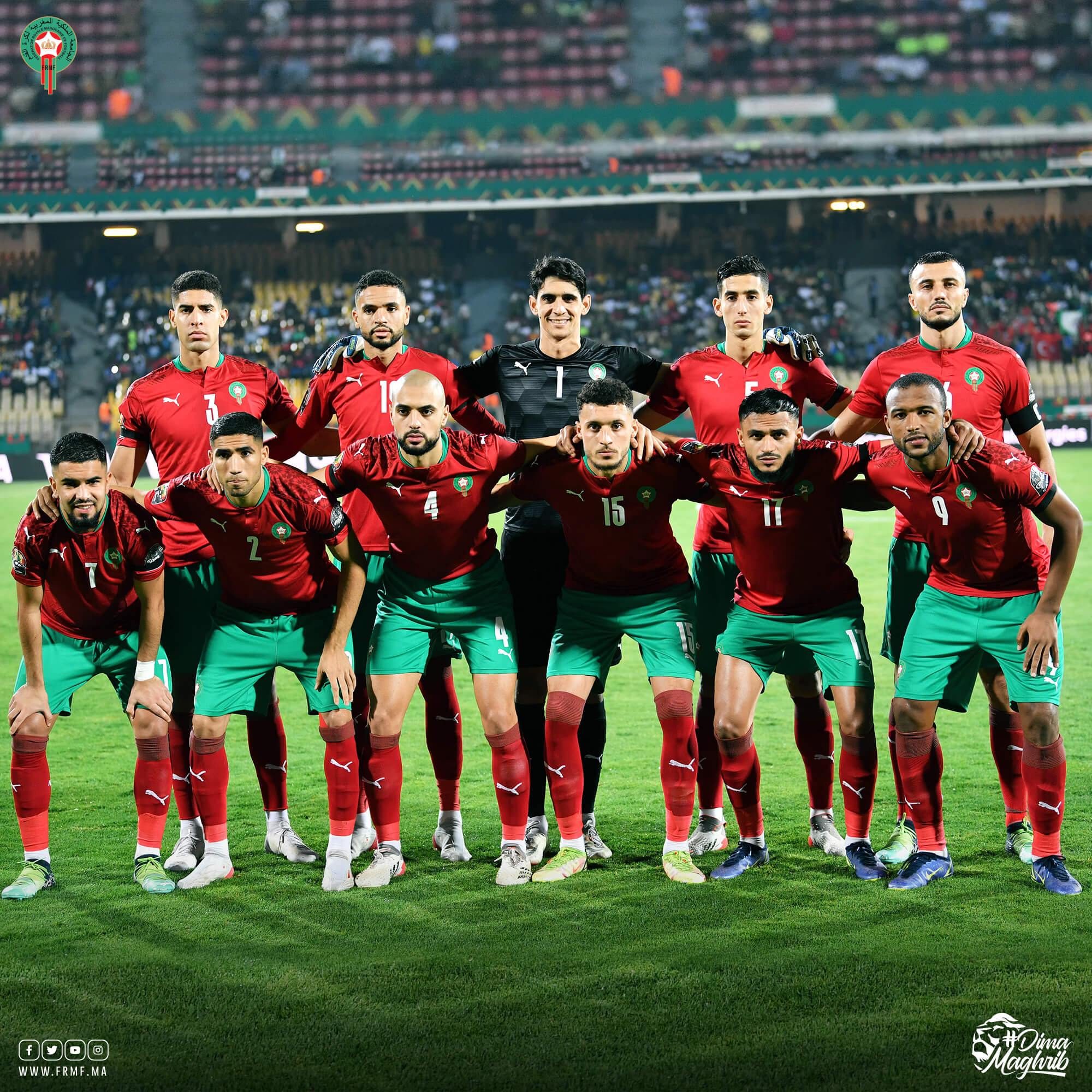
Croatia's first World Cup match will be against Morocco on November 23 at Al Bayt Stadium. (Image: @EnMaroc/Twitter)
Canada might sound to many like the rival to beat, but don't underestimate that the Canadians finished the CONCACAF standings in the first place and very comfortably ahead of more experienced teams like the United States, Mexico, or Costa Rica. The North American country will be looking to bring out the best in a golden generation that includes the likes of Alphonso Davies (Bayern Munich), Jonathan David (Lille), and Cyle Larin (Besiktas).
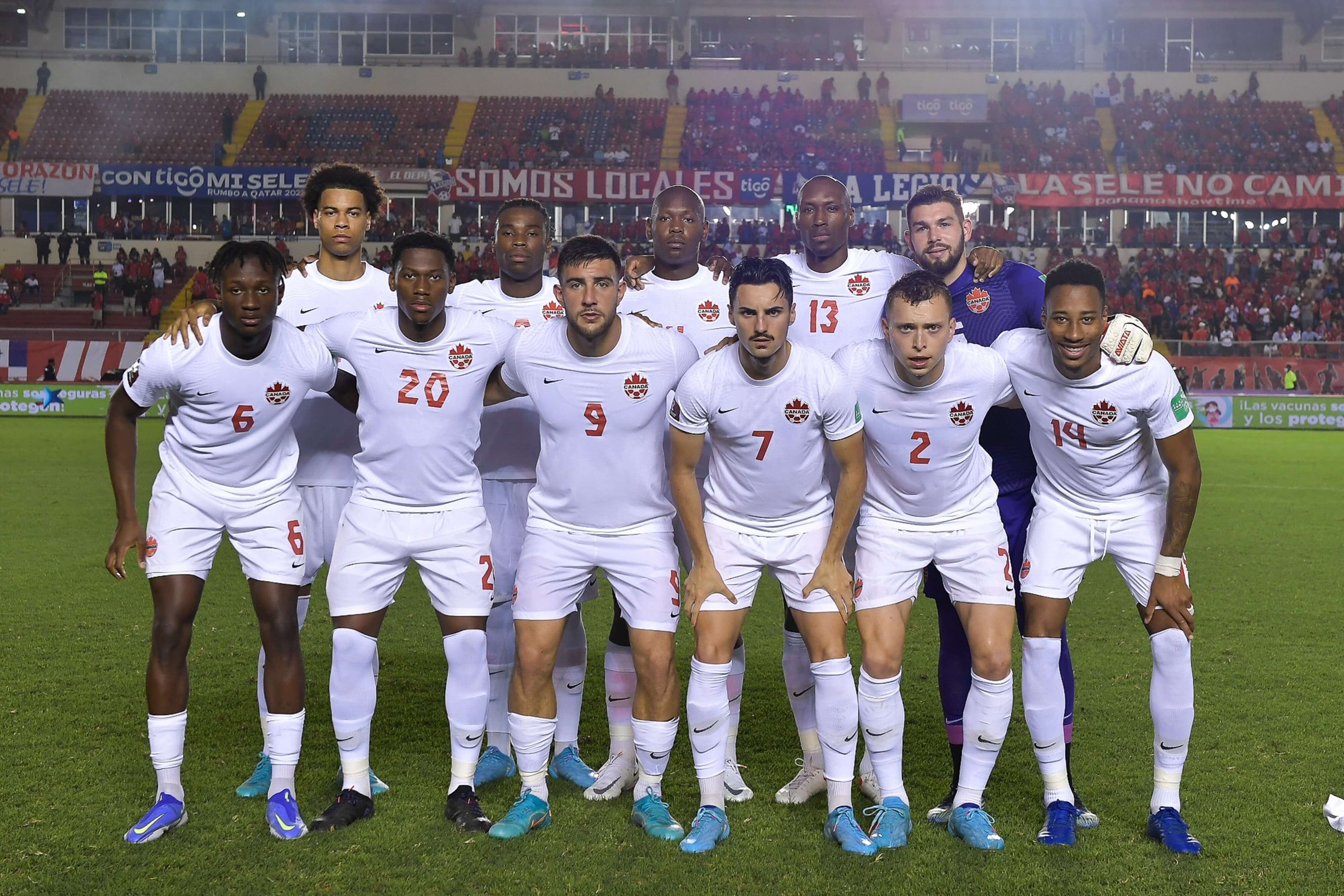
Croatia's second game will be against Canada on November 27 at the Khalifa International Stadium. (Image: @CanadaSoccerEN/Twitter)
Finally, Belgium will surely be Croatia's big test, and many believe that it will be between them who will go through to the round of 16 as group leader. But despite the fact that some point out the bad moment and the injuries of Eden Hazard at Real Madrid, the lack of continuity of Romelu Lukaku at Chelsea, or the departure of emblematic defenders such as Vincent Kompany or Thomas Vermaelen, the truth is that the Belgian team also has reasons to go far. A team that has Kevin De Bruyne (Manchester City), Thibaut Courtois (Real Madrid), Yannick Carrasco (Atlético Madrid), Axel Witsel and Thomas Meunier (Borussia Dortmund) at the peak of their football maturity, as well as many youngsters who will refresh the team with their mischief, like Youri Tielemans (Leicester City), Alexis Saelemaekers (Milan), Albert Sambi Lokonga (Arsenal) or Jérémy Doku (Rennes), is a team to bet on as World Cup champions. In 2018, they were the third-place team behind Croatia.

Croatia will close the group stage against Belgium on December 1 at the Ahmed bin Ali Stadium. (Image: @BelRedDevils/Twitter)
So if the group is not as easy as we thought, why would it be a reason to dream? Although I insist that confidence comes from not underestimating the rivals but instead being cautious, other groups have more even teams. Group E has Spain, Germany, and Japan (waiting for Costa Rica and New Zealand). Group H has Portugal, Uruguay, South Korea, and Ghana. Croatia will first play Morocco, then Canada, and will play the last game of the group stage against Belgium. If Croatia believes in its chances, it could arrive with six points to face the Belgians and fight for first place in the group. But, of course, those six points must be won first, and for that, they will have to be at the same level as the Moroccans and the Canadians.
A new generation of Croatian football players
Something that surprised (and saddened) everyone after the World Cup in Russia was the retirement from the national team of many players who were part of that wonderful team that got second place: Danijel Subašić, Vedran Ćorluka, Ivan Rakitić or Mario Mandžukić. Likewise, some starting players have been left out due to physical problems, such as Ivan Strinić, or behavior, such as Ante Rebić.
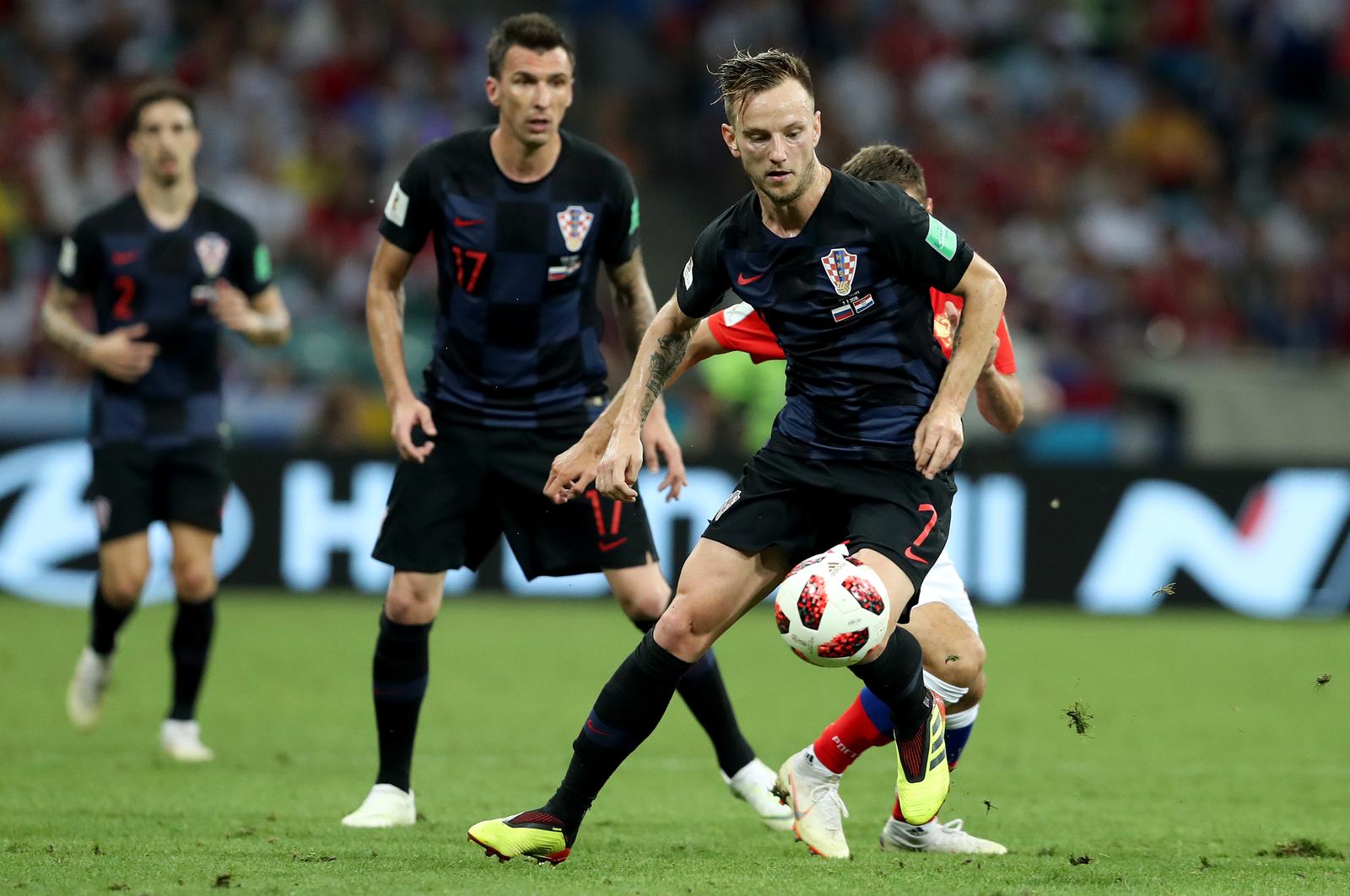
Mario Mandžukić and Ivan Rakitić, two key players who are no longer part of the Croatian national team. (Photo: Igor Kralj/PIXSELL)
It is difficult to deny the negative impact of their absences on the Croatian team, and this could be seen in the subsequent Nations League (2018-19 and 2020-21) and Euro 2020, where it seemed that Dalić's team could not find a way to cover their exits.
But the Croatian team, especially in the second part of the World Cup qualifying phase, seems to have found several young players who will make their debut in the top competition, and nourish the team with their energy and desire. Dominik Livaković (Dinamo Zagreb) in goal, defenders Borna Sosa (Stuttgart), Joško Gvardiol (RB Leipzig), and Josip Juranović (Celtic), midfielders Nikola Vlašić (West Ham), Nikola Moro (Dynamo Moscow), and Lovro Majer (Rennes), and striker Josip Brekalo (Torino) are some of the players who will complement the more experienced players.
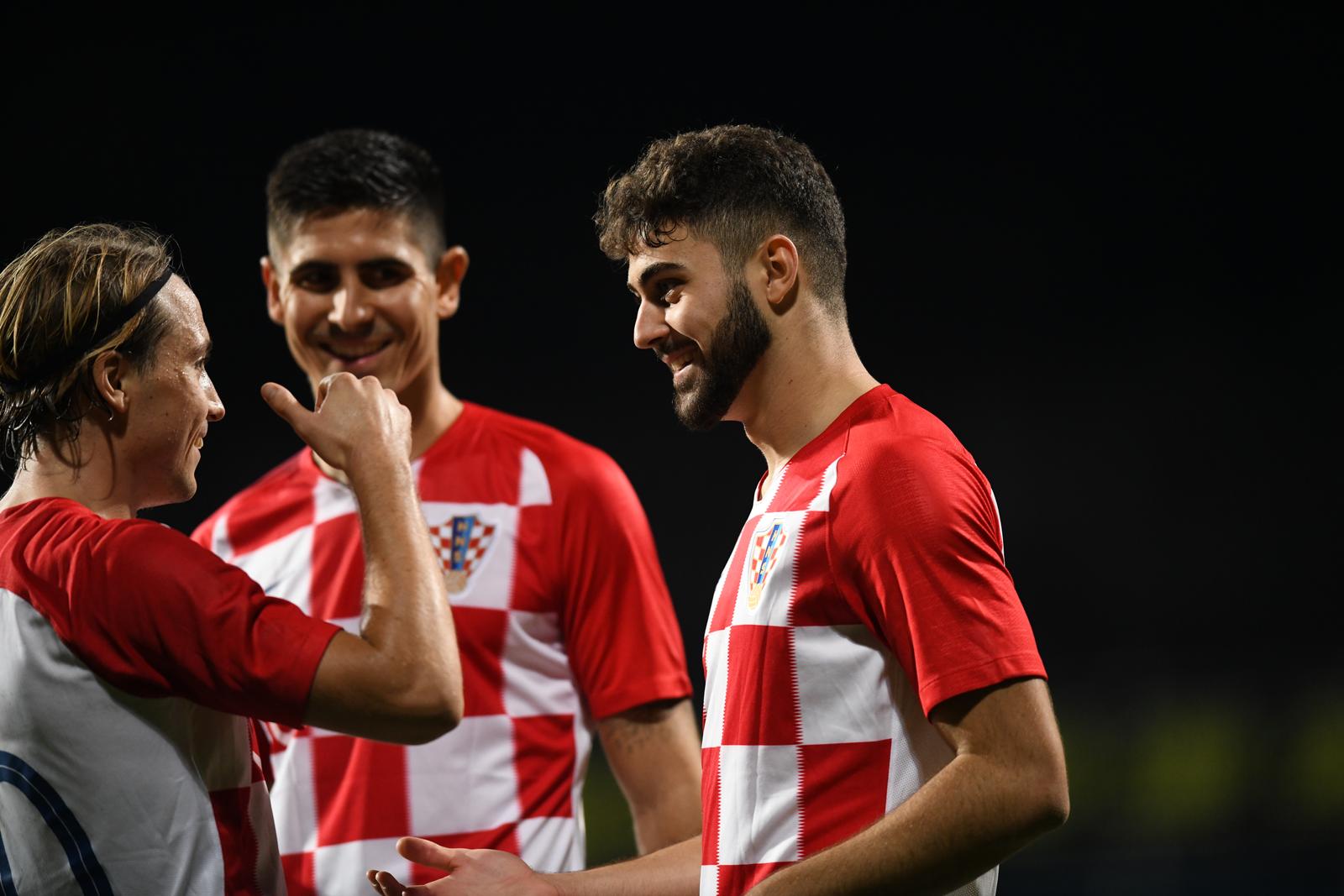
Lovro Majer (left) and Joško Gvardiol (right), two young Croatian players who are called to renew the national team with their youth and projection. (Photo: Josip Regovic/PIXSELL)
Likewise, and despite not being as young as those already mentioned, some players who did not go to the last World Cup will also have the opportunity to bring the best of their talent and experience to the Croatian team. Marko Livaja (Hajduk Split) and Mislav Oršić (Dinamo Zagreb) shine in the Croatian First League and will help Vatreni regain offensive power with their fighting spirit.
In the last games that gave Croatia the qualifying ticket, these players showed not only to be decisive but also made it clear that they are ready for any football challenge. Many of them are starters for their clubs and in competitive leagues, and some of them are even starters for the national team. Let's hope Dalić gives them the opportunities they need to shine and gain experience.
Experience all around the field
And while many of the players who achieved the epic in Russia are no longer in the squad, Croatia will need more than ever of those who stayed. Croatia will need their leadership, their experience, and their hunger for revenge. An extremely young team is not always good, and neither is a team with a lack of renovation. But Croatia seems to have found that balance, and in all lines.
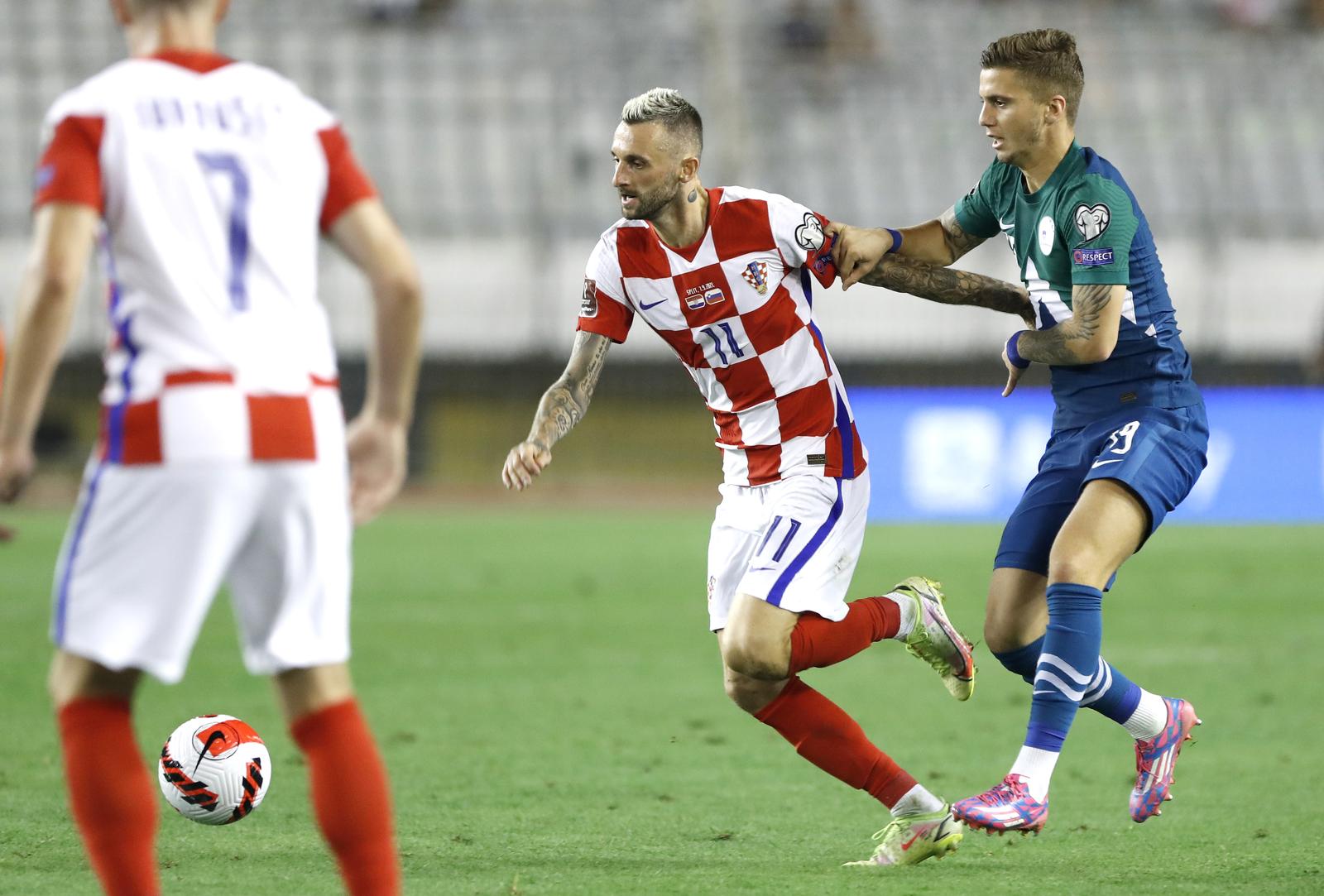
Marcelo Brozović, the undisputed midfield leader at Inter Milan who became champions of Serie A in the 2020-21 season. (Photo: Milan Sabic/PIXSELL)
The good news for Dalić is that several of the players who were in Russia, despite now being four years older, are in even better sporting form than they were back then. Marcelo Brozović has established himself as the decisive player in Inter Milan's midfield, ending Juventus' reign in Serie A last year and fighting for a second consecutive Scudetto this season. Also at Inter, Ivan Perišić has managed to maintain his status as a starter, and despite the passing of the years, Ivan continues to be a benchmark in the Neroazzurro attack, as he proved himself by winning the 2019-20 UEFA Champions League during his loan spell at Bayern Munich.
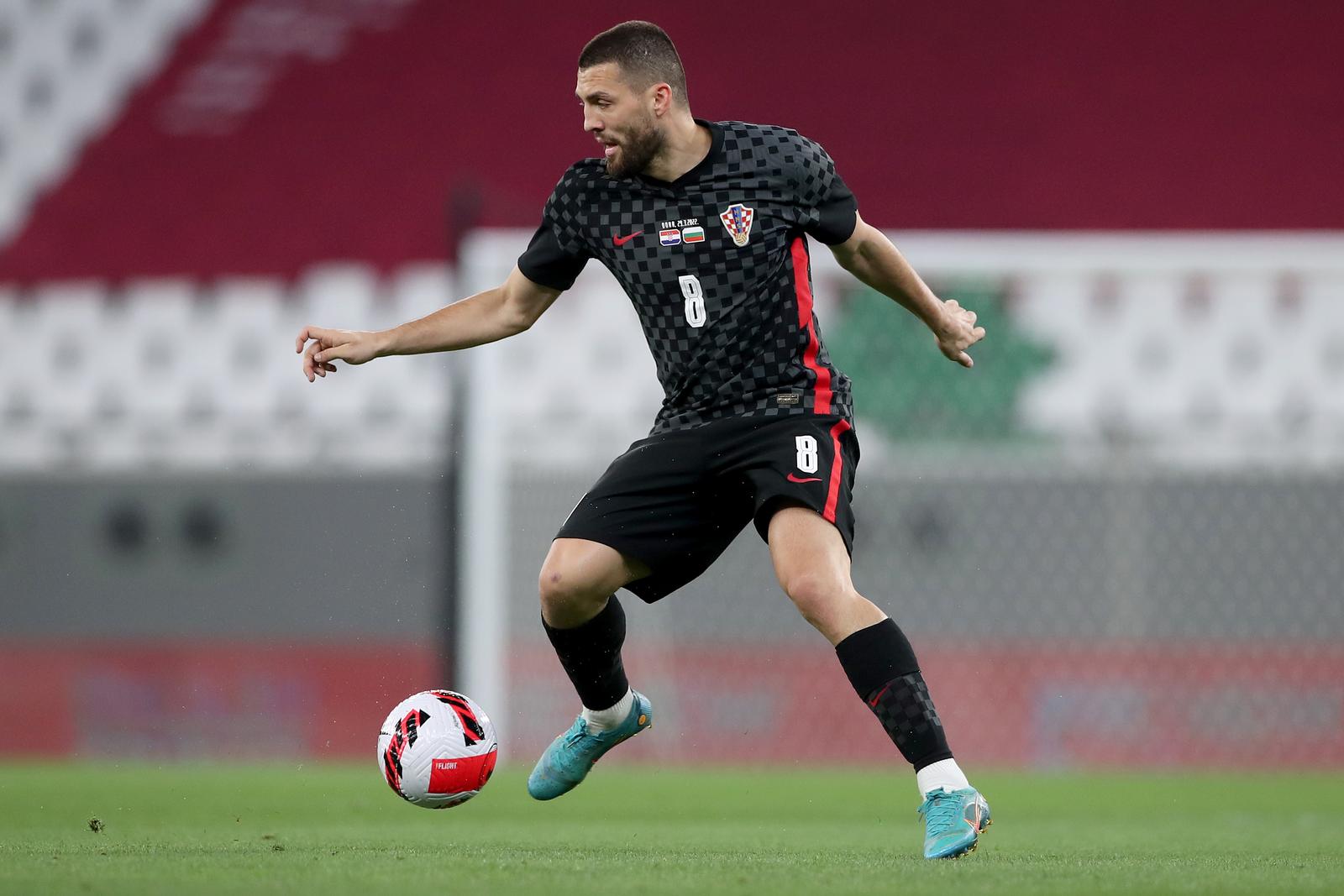
The last seasons of Mateo Kovačić at Chelsea have been spectacular and he is called to be the companion of Modrić and Brozović in the Croatian midfield after the retirement of Ivan Rakitić. (Photo: Igor Kralj/PIXSELL)
Mateo Kovačić, who played a more secondary role in 2018, is now indisputable in Thomas Tuchel's plans at Chelsea, with whom he won the 2020-21 UEFA Champions League, in a midfield that also includes players like Kante, Jorginho, or Saul. Many fans of the London team consider him not only his favorite but also the best. In defense, Dalić still has Domagoj Vida and Dejan Lovren, who in 2018 showed the world their valuable fighting spirit on the field, something that they can still pass on to the younger players.
World Cup calendar
Due to the high temperatures in Qatar between June and July, the usual format of the World Cup will change for the first time in its history. Now, the opening match will be on November 21, while the final will be on December 18. Previously, the group draw was held in December, six months before the start of the tournament. This year, the qualified teams already know their rivals with more than eight months to go until the start of the World Cup. Also, after the draw in December, the players used to face only the second part of the season and some friendlies before integrating with their national team in June.
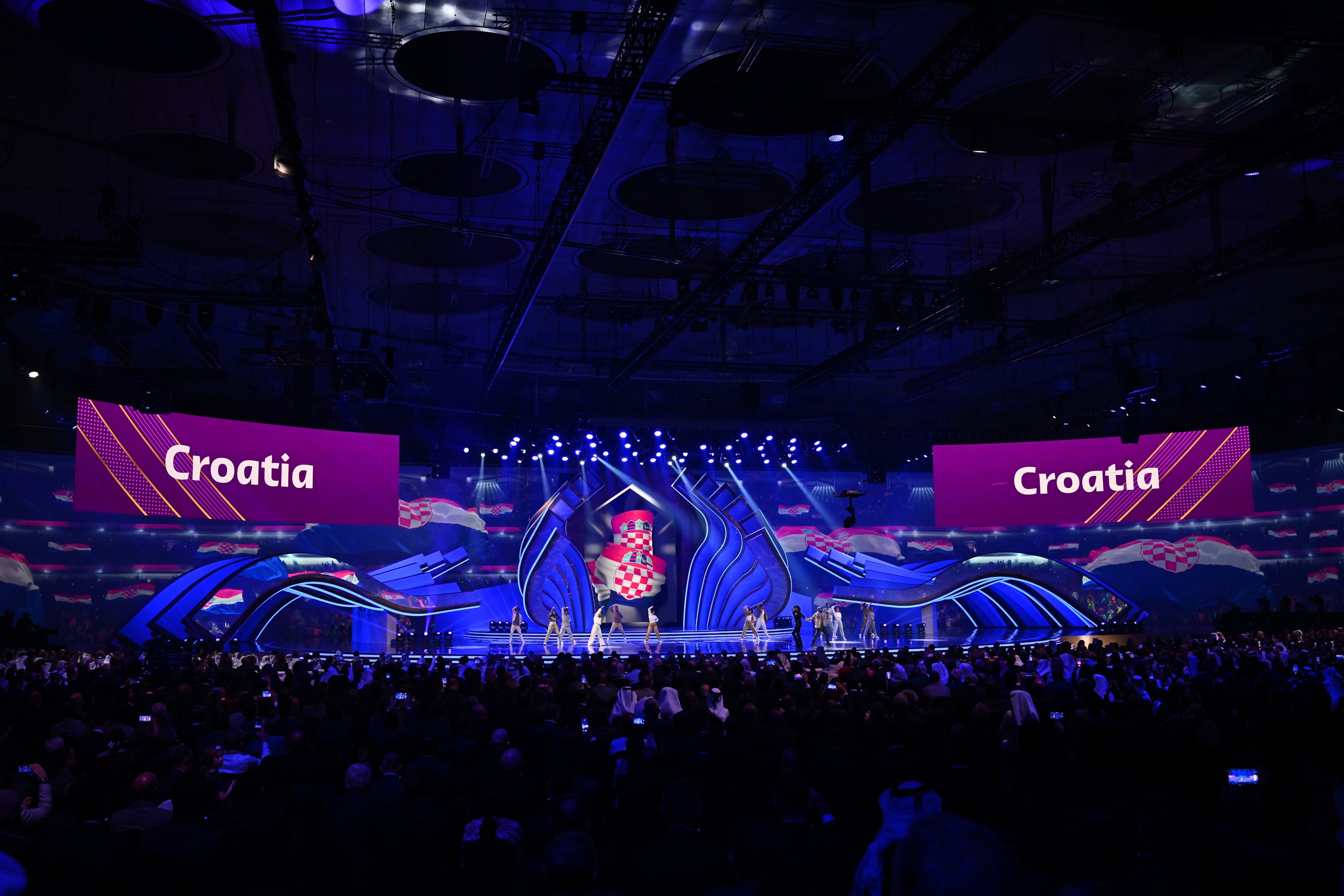
Contrary to previous editions, the World Cup will take place between November and December, and the draw for the group stage will take place in April. (Image: @HNS_CFF/Twitter)
In this way, Zlatko Dalić not only has two additional months to evaluate his players well before making a final decision on his squad in October or November, but he will do so by playing high-competition matches such as the Nations League, in a group that they make up France and Denmark (qualified for the World Cup in Qatar) and Austria, which reached the playoffs. Thus, some players who were not part of the qualifying process from the beginning will have more opportunities to show that they can be decisive in Dalić's tactics. Sometimes four friendlies before the World Cup are not enough to draw any conclusions about line-ups and strategies.
On the other hand, the Croatian players will play two different seasons before the start of the World Cup: the second part of the 2021-22 season, and the first part of the 2022-23 season. This can be beneficial for three main reasons. First of all, some players who are currently not playing many games as starters (Nikola Vlašić at West Ham or Šime Vrsaljko at Atletico Madrid), can solve their situation with a transfer or loan to another team during the summer, and from this way to pick up more form by playing more games.
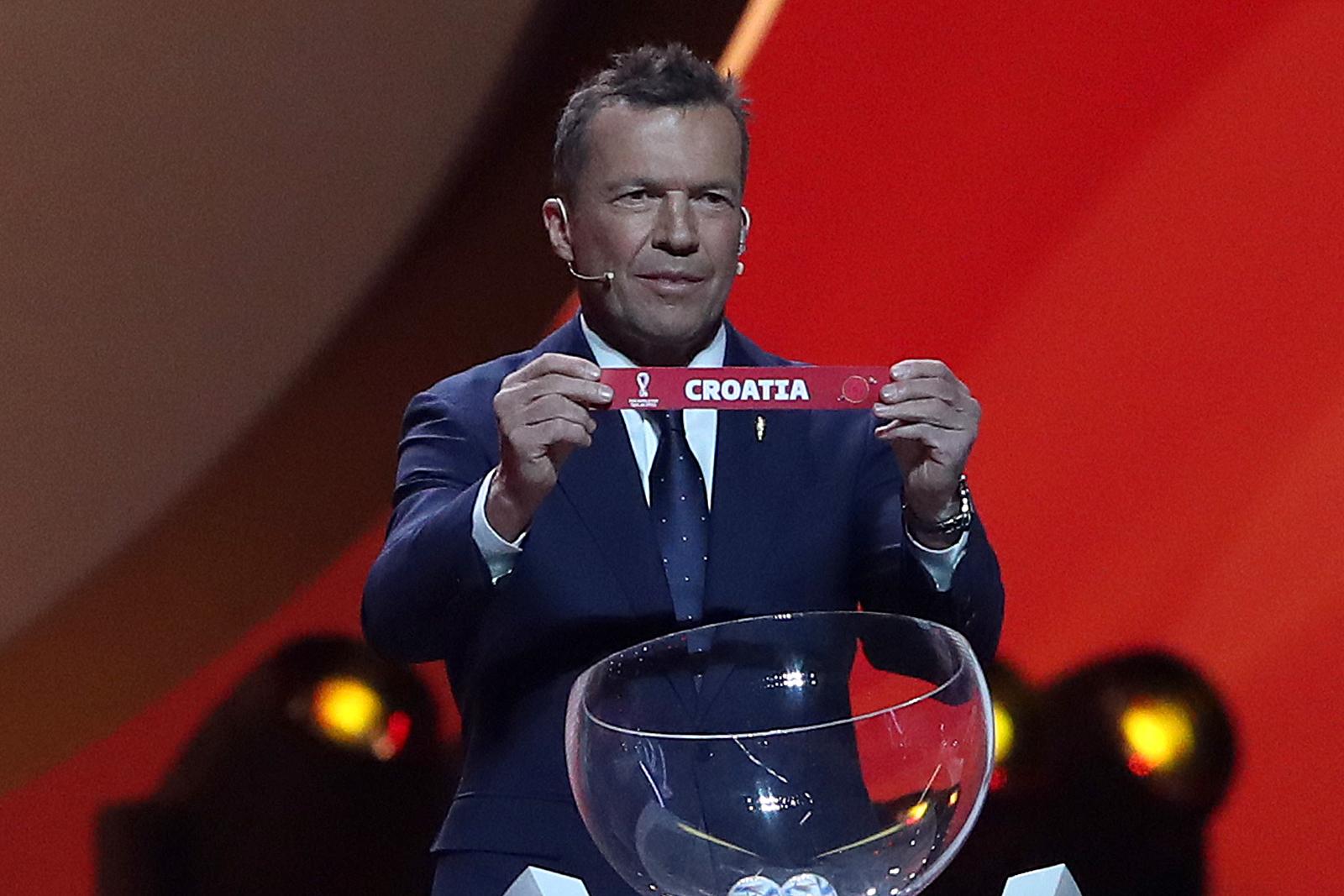
Croatia already knows its rivals eight months before the start of the World Cup, enough time to study them and prepare. (Photo: Igor Kralj/PIXSELL)
Secondly, some players like Ivan Perišić at Inter, Mateo Kovačić with the current problems at Chelsea, or Dejan Lovren at Zenit, can resolve the contracts with their current clubs, and thus become more focused on the field and the Croatian national team.
Finally, and taking into account the competitiveness of the second part of the season, many football players used to miss the World Cup in June as there was not much time to recover from their injuries, some even minor. If it were the case (hopefully not) that a Croatian player suffered an injury in these months, it is possible that they could recover before the World Cup in November, especially considering the rest months between June and July.
The Croatian national team has everything to arrive in good physical condition and great concentration in November, and Dalić to decide on a harmonious line-up and strategy, which could help them face their rivals in Group F with a lot of preparation.
One of the Best Players in the World
Croatia did not get third place in France '98 with a single player, nor the second place of Russia in 2018. Football is a team sport, and to win a World Cup eleven players is not enough, but a complete squad with players committed to a common goal. That is the reason why Croatia reached the final against France before other teams like Argentina, Portugal, or Brazil.
However, if in your squad you have a uniquely talented player, an undisputed figure in one of the best football clubs in history, a leader with 16 years of experience in the national team, and an endless fighting spirit when it comes to attacking and defending even in the 120th minute, it is enough to motivate an entire country and make them believe that they can go very far. Some still believe to this day that Luka Modrić received the 2018 World Cup best player trophy, the Ballon d'Or, and FIFA The Best as consolation after losing the final against France. If his season with Real Madrid (where he was decisive in winning the 2017-18 UEFA Champions League) and his goals and performance in the 2018 World Cup were not enough, Luka has shown them today that he is more relevant than ever and one could even say that he's in the best moment of his career.
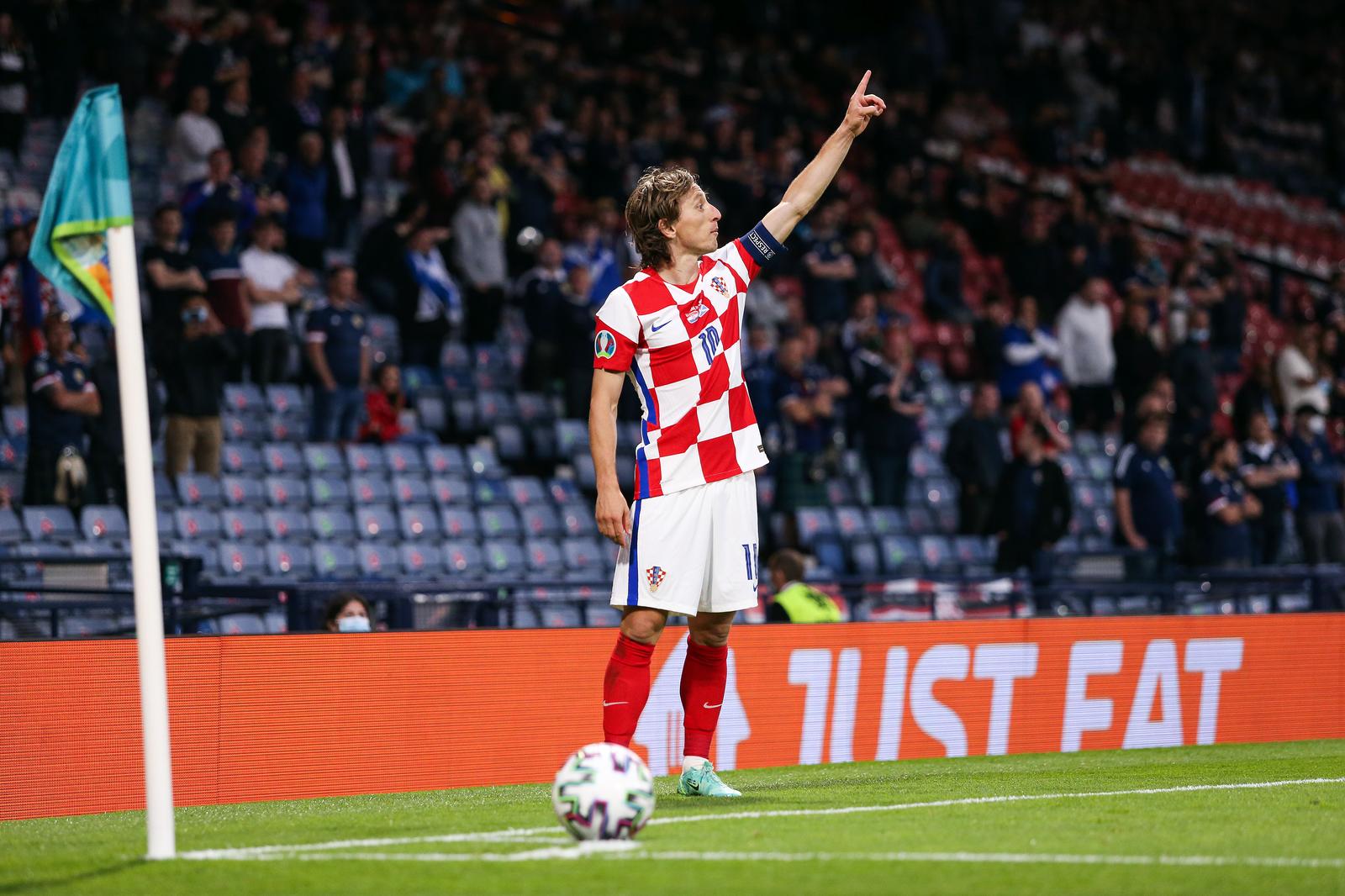
Luka Modrić will play his fourth and last World Cup at the age of 37 and in great shape. (Photo: Luka Stanzl/PIXSELL)
Since he secured a place in Real Madrid's starting eleven in the 2013-14 season with Ancelotti (winning the UEFA Champions League along the way), no player has been able to take his place. Along the years, Luka has seen how several midfielders have come, gone, and stayed: Sami Khedira, Xabi Alonso, Mesut Özil, Asier Illarramendi, Isco, James Rodriguez, Toni Kroos, Martin Odegaard, Casemiro, Dani Ceballos, Federico Valverde, Eduardo Camavinga... but the Croatian has always been a constant, and has recently reached an agreement with Real Madrid to extend his contract even further.
Luka will arrive at the World Cup at the age of 37, probably being one of the oldest among all players. However, and as has been shown in this season of the Spanish La Liga (where Real Madrid is close to winning the title with a great difference in points over their rivals) and in the UEFA Champions League, the Croatian captain is in a great moment of form and with intact talent and technique. Also, Modrić's style of play and his position on the pitch are essential for the team's performance. Some rely on goalkeepers, central defenders, or even forwards as the star of the team, but Croatia sees having a player who is among the best in the world in attacking and defensive work as the key to success.
Luka assists, scores goals, recovers balls, and, above all, leads his team by example and attitude. This will be his last World Cup for him, and we are sure that he will want to say goodbye to the national team in the best possible way and with him a team with talented players who will help him lead Croatia back to glory.
To read more about sport in Croatia, follow TCN’s dedicated page.
Euro 2020 Most 'Googled' Term in Croatia in 2021
ZAGREB, 12 Dec 2021 - The European Football Championship was this year's most searched term on Google in Croatia, and none of the top three searches are related to COVID-19 despite the pandemic not easing.
The multinational corporation which specializes in Internet-related services and products last Wednesday released a list of the most searched terms in Croatia this year, and it provides a unique insight into the most popular trends.
The most googled keyword is related to this year's European Football Championship, which took place from 11 June to 11 July in 11 host cities.
In addition to "Euro 2020", a large number of searches included the keyword 'elections', which is not surprising given the fact that local elections were held this year.
The third most searched term in Croatia was the TV series "The Ambassador's Daughter", while COVID certificates ranked fourth, followed by the Dinamo-Tottenham match, the census, Đorđe Balašević, Eurosong, the Squid Game TV series, and the Croatia-Russia match.
Another frequently googled keyword in Croatia in 2021 was ''diets''.
To read more about sport in Croatia, follow TCN’s dedicated page.
Poljud Ticket Sales for Decisive Croatia-Russia World Cup Qualifier Announced
October 22, 2021 - Tickets for the decisive Croatia-Russia World Cup qualifier at Poljud will go on sale on Monday!
The Croatian Football Federation has announced that the online ticket sales for the final 2022 World Cup qualifier against Russia will start on Monday at 1 pm.
The Croatia-Russia match is scheduled for Sunday, November 14 at Poljud, starting at 3 pm, and tickets will be sold through the HNS ticket portal at the following prices:
West middle - 200 kuna, West - 150 kuna, East Middle 120 kuna, East - 100 kuna, North / South - 80 kuna.
On the day of the match, tickets will be sold at the following prices:
West middle - 250 kuna, West - 200 kuna, East middle - 150 kuna, East - 120 kuna, North / South - 100 kuna.
The Croatian Football Federation emphasized that all persons coming to the stadium must have an EU digital COVID certificate, i.e., that vaccination certificates or recovery certificates will not be recognized, as well as various test results, but only an EU digital COVID certificate with a valid QR code that will be checked at the entrance.
HNS will also provide rapid antigen testing points, after which everyone who tests negative will receive an EU digital COVID passport necessary to enter the stadium. The price, location, and opening hours of the testing point will be announced at a later date.
Ticket sales include e-tickets that the customer must download and print, and only citizens of the Republic of Croatia have the right to purchase, regardless of residence address, by filling in the required personal information.
Due to special epidemiological measures in the stands, one person can buy up to four (4) tickets. In addition to their data, the customer also enters data on the other ticket holders, where they do not necessarily have to be a citizen of the Republic of Croatia.
Tickets will be available at the ticket portal, where you can find detailed information on ticket sales and payment methods.
HNS warns fans that guards will check the accuracy of personal data on the tickets when entering the stadium. Fans who try to enter the stadium with a ticket under another name will be denied entry. Therefore, HNS urges fans not to buy tickets on the "black market" or from scalpers.
The Croatia-Russia match will decide the winner of the Group H World Cup qualifying group, i.e., the team that will secure a direct place in Qatar, while the second-placed team will advance to additional qualifications. Two rounds before the end, Russia leads the group with 19 points and in second is Croatia with 17 points. Before the decisive clash at Poljud, Russia will host Cyprus, while Croatia will host Malta. Both Russia and Croatia are expected to win their penultimate matches.
To follow the latest sports news in Croatia, follow TCN's dedicated page.
To learn more about sport in Croatia, CLICK HERE.
Highlights of the Week: 5 Big Events in Croatia from May 31- June 6, 2021
June 6, 2021 - TCN's highlights of the week. A look at the events in Croatia from May 31 through the selection of TCN's reporter Ivor Kruljac.
From significant political changes after the local elections to the losses and preparations in sport, the week was hyped by a strive for hope in Croatia. But, the tragic murder of Nino Čengić in Varaždin was a painful kick to the stomach. Here is another weekly selection of the news depicting the bittersweet life in Croatia.
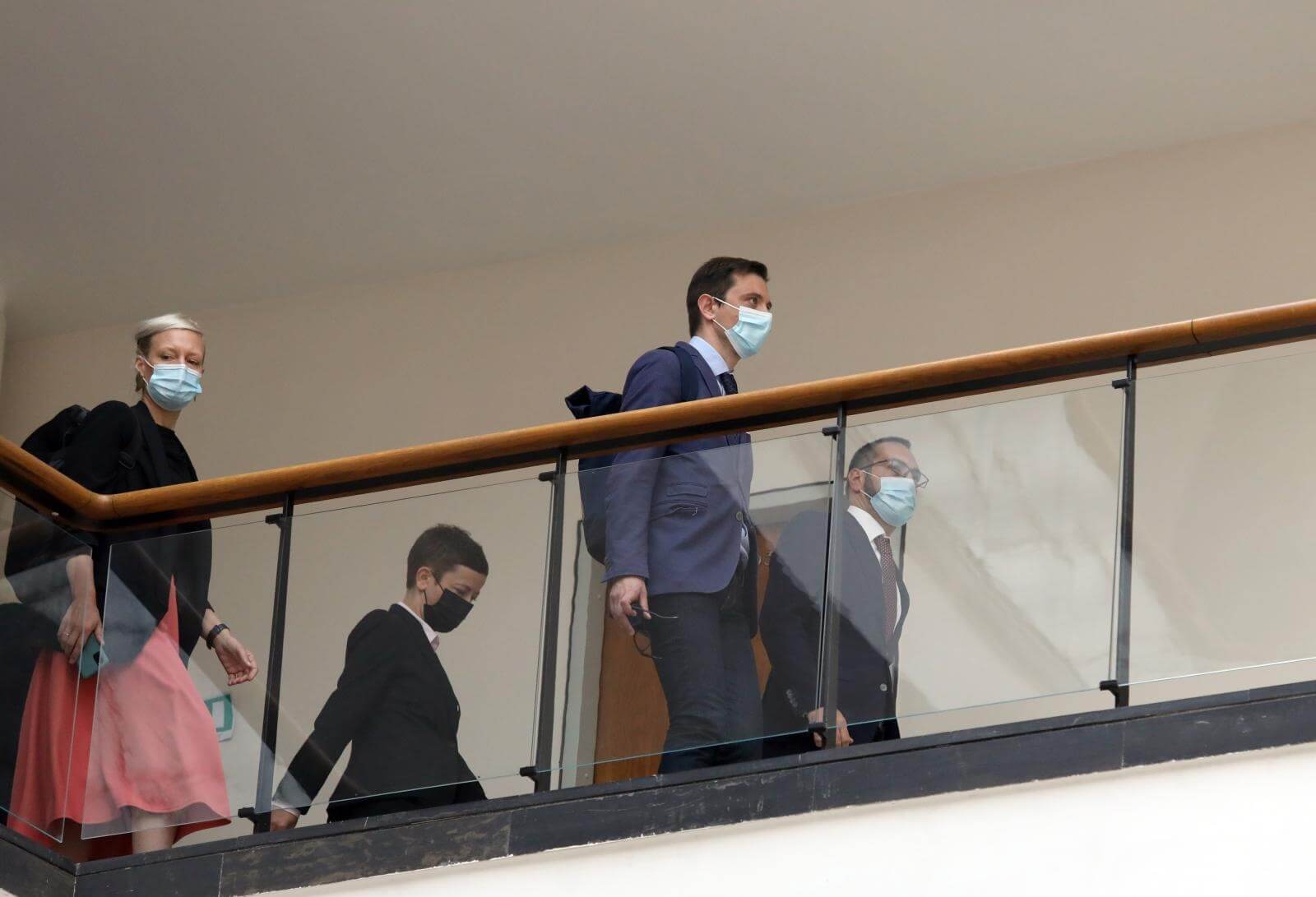
© Patrik Macek / PIXSELL
Highlights of the week: Tomislav Tomašević officially. becomes the new mayor of Zagreb
Zagreb local elections winner Tomislav Tomašević met with Jelena Pavičić Vukičević for an official ceremony of transferring power on Friday, which makes Tomašević officially the new mayor of Zagreb.
Media attention was also caught for the fact that Tomašević was four minutes late to the ceremony because he was waiting for the ambulance on Cibona because a woman fell ill in the middle of the street. But, for the bigger public interest, it's important to note today was the first time for Tomašević to have a detailed view on the financial situation of the City of Zagreb, giving him a clear picture of the debt problem Zagreb has.
As TCN reported earlier, Tomašević told the press after the ceremony that the situation is not good, but there are solutions. Still, so far, no more details were given on the two-thousand-odd-page reports on the 2020 budget execution and preliminary figures. Additionally, the new city assembly would hold the founding meeting on 17 June.
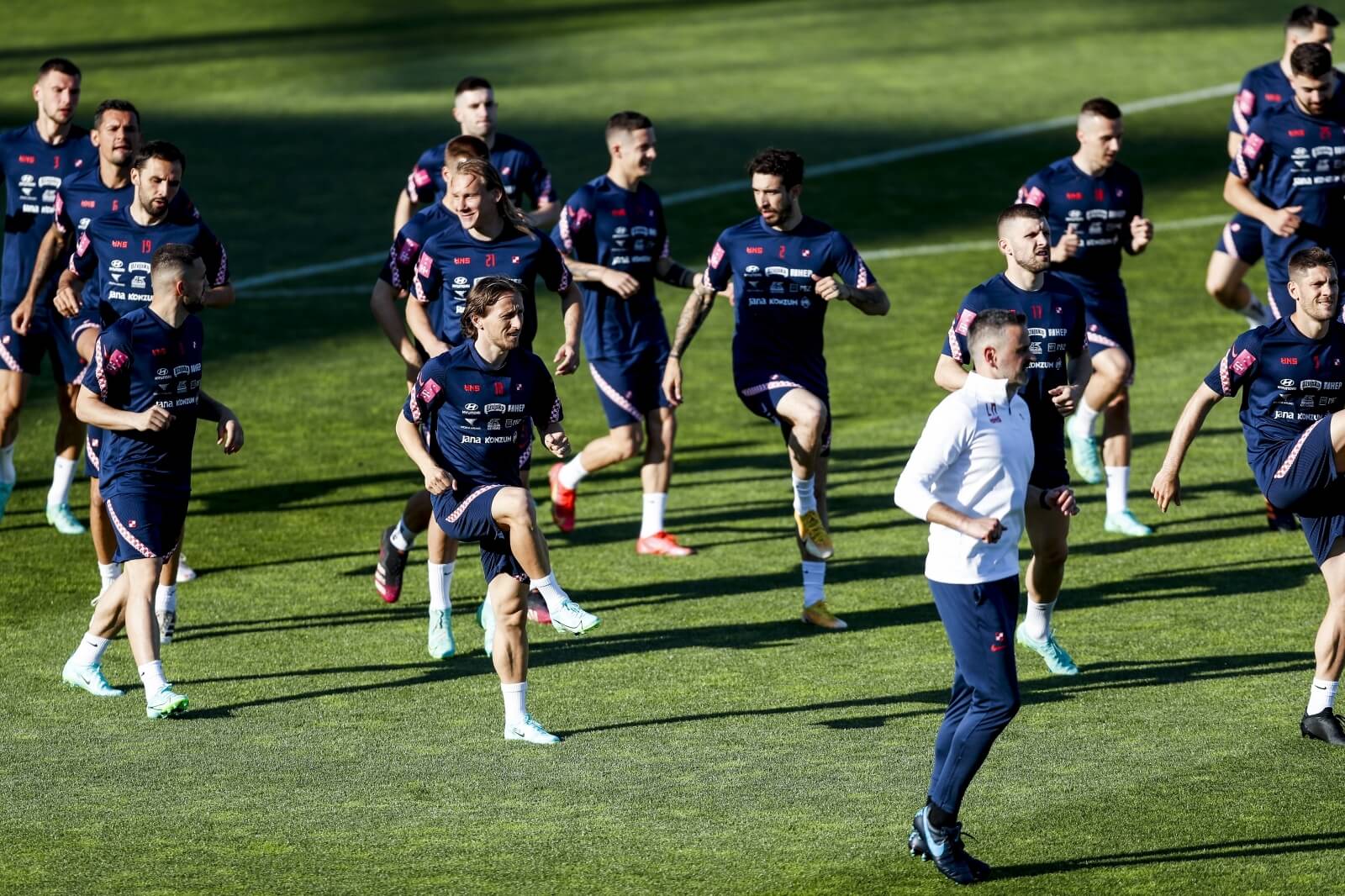
© Slavko Midzor / PIXSELL
Highlights of the week: Zlatko Dalić on Croatian National Football Team
The Croatian National Football Team is preparing for the friendly clash with Belgium. As reported by TCN, Zlatko Dalić faced the press on Friday ahead of the match.
„I am satisfied with everything except the result. We had minor injury problems. We did the rest as expected, but the draw with Armenia left a bitter taste. In that game, we had to win 4-0 or 5-0, not draw 1-1. I am dissatisfied with this result. Plus, we created 5-6 percent chances, and we didn't do that in three games in a row at the beginning of the World Cup qualifiers against Slovenia, Cyprus, and Malta. We were nonchalant and irresponsible and did not realize them. We were not specific, and that is a minus“, said Dalić to the press.
Dalić also pointed out that the national team is aware of its obligation to the Croatian people. He spoke about the problems in the national team, the pros and cons of the draw against Armenia, and the expectations from players who are dissatisfied with their status. One of them is Andrej Kramarić, who, after 20 goals scored in the Bundesliga this season, is not safe among Dalić's starters. A few days ago, he advised the media to ask Davor Šuker what he would say after such a season.
Expectionsare big ahead of the EURO championship, and no doubt fans will pay attention with close interest.
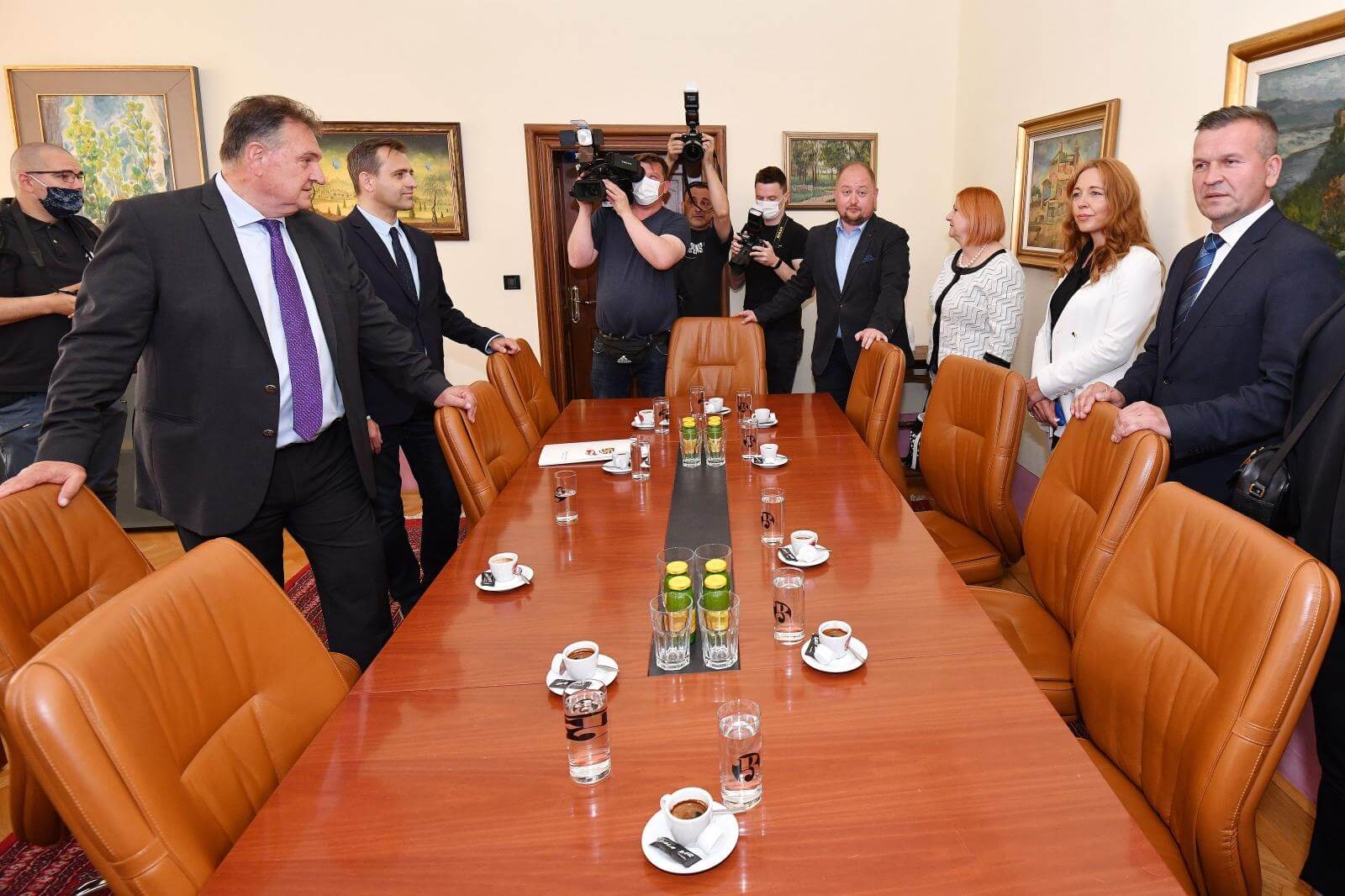
© Vjeran Zganec Rogulja / PIXSELL
Highlights of the week: Anđelko Stričak, new prefect
The power transfer ceremony on Friday also took place in Varaždin where Anđelko Stričak defeated current Varaždin prefect Radimir Čačić.
„The victory is well deserved. In the past nine years as the president of Varaždin county organization of the Croatian Democratic Union (HDZ), and in six years as a member of the parliament, I've been to every corner of Varaždin county and talked to everybody. I heard the needs of our citizens, and I tried to solve them by cooperating with coalition partners on every level. Of course, I'm not the best, most capable or most perfect, but I will try with my team to give my best that everybody in the county feel changes for the better“, said the new Varaždin County prefect Stričak, as reported by Varaždin county's official website.
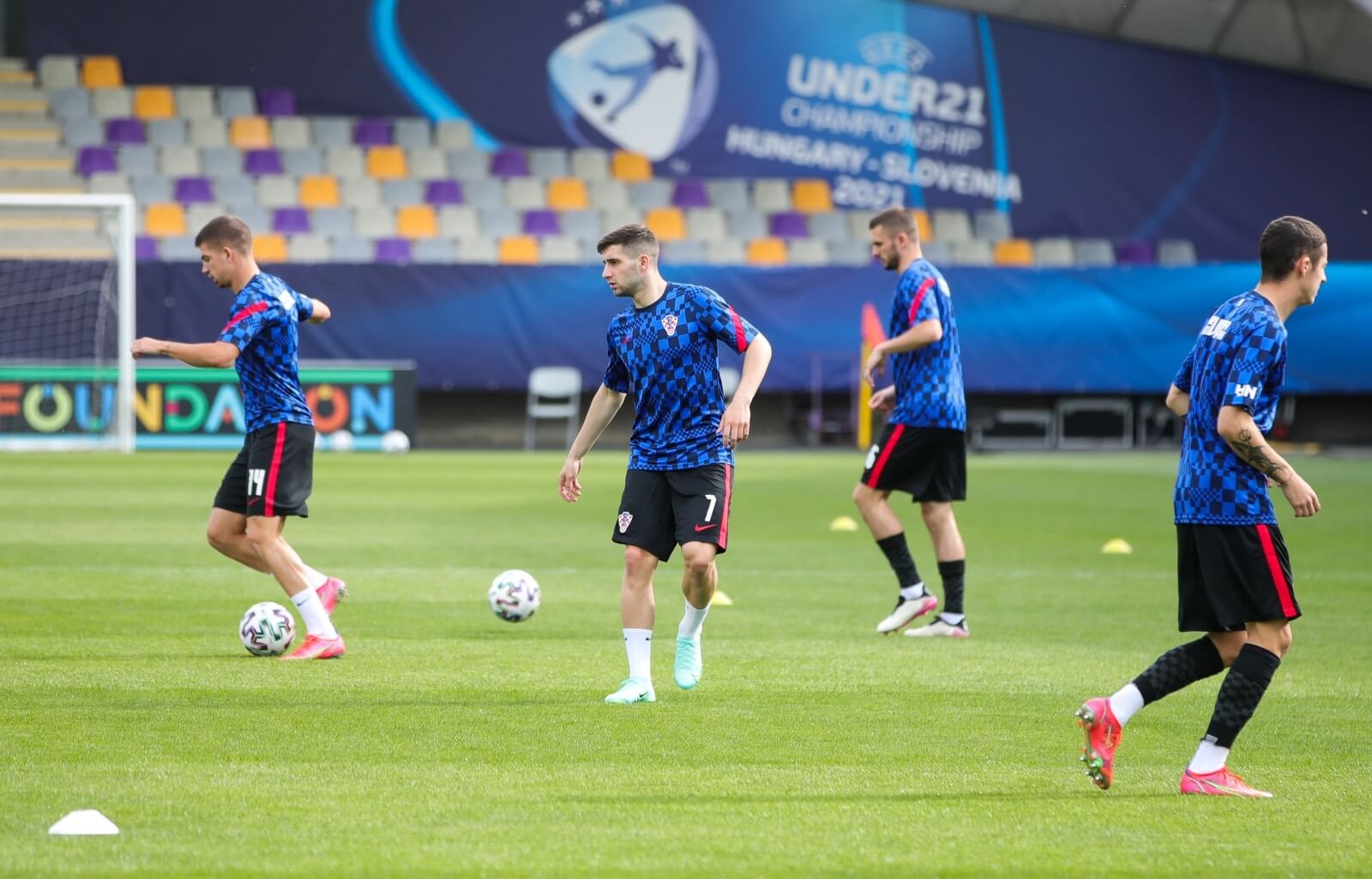
© Sanjin Strukic / PIXSELL
Highlights of the week: Croatia Loses to Spain in the Under-21 European Championship
Spain was better than Croatia after extra time in the Under-21 European Championship quarter-final in Maribor on Monday. The match ended 2:1. As reported by TCN, Croatia was solid in the first half and threatened the Spain goal on a few occasions. Despite Spain's high pressure, Ivanušec had a chance from 20 meters in the 7th minute, and in the 23rd, Bradarić's shot was blocked by the Spain defense. Spain retaliated with a Diaz shot from 20 meters, but Croatia's defense made it difficult for them to do much more.
The young Croatia national team fought against Spain for a spot in the semifinals.
Igor Bišćan's side met Spain at Ljudski Vrt stadium in Maribor.
"The guys are aware that we have a great chance, they are motivated to do something, and we are all around them to give them that chance and be supportive. They have quality," Bišćan announced before the match. 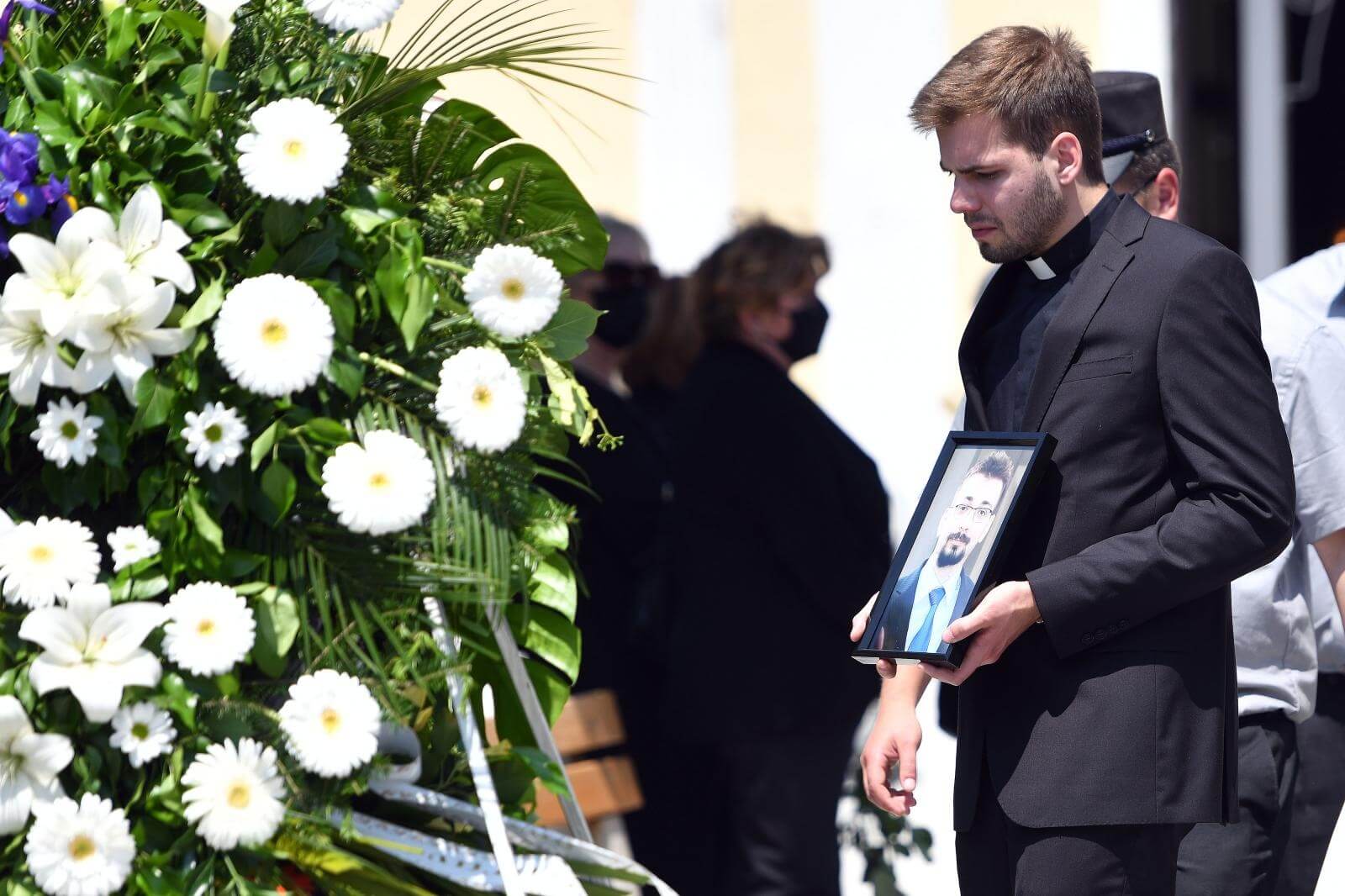
© Vjeran Zganec Rogulja/ PIXSELL
Highlights of the week: Nino Čengić funeral in Varaždin
The Funeral of the English professor Nino Čengić who passed away last Sunday, was held on Wednesday. Nino Gengić, a substitute English professor in one Varaždin school, was brutally beaten with bats and chains in front of the local club in Varaždin called Kulturana. He was 35 years old.
As Jutarnji List reports, four suspects aged 24-29 are currently in custody while the investigation is ongoing as to what lead to this attack. Suspect's apartments were searched, and one suspect illegally possessed a considerable amount of ammo and fire weapons to match. All suspects were previously known to the police for troubling behavior, and the most tragic was the fact that 15 people witnessed the beating, but nobody stopped it.
To learn more about Croatia, have a look at our TC website.
For more about news in Croatia, follow TCN's dedicated page.
Euro 2020 Qualifiers: Croatia v. Wales at Osijek's City Garden Stadium Sold Out
May 25, 2019 - In June, Croatia continues their Euro 2020 qualifications with the highly anticipated match against Wales.
The Croatia national football team will host Wales in its third qualifying match for Euro 2020 on Saturday, June 8, starting at 15:00 at City Garden Stadium in Osijek.
The Croatian Football Federation published details regarding the sale of tickets for the duel on Wednesday, May 22.
Namely, tickets for the game against Wales were available from May 23 via online sales and would stay available at the pre-sale price until June 2 at 23:59. Spectators could also purchase tickets at the box office at City Garden Stadium from May 23 to May 26 during the pre-sale. Pre-sale ticket prices ranged from 80 kuna for the East stands, to 150 kuna for the West. Ticket prices were meant to increase from 120 to 200 kuna once the pre-sale ended.
And if you didn’t grab tickets during the pre-sale, you’re out of luck.
Namely, HNS announced that in just two days, all available tickets via the internet and box office at City Garden Stadium had been sold, confirming just how significant the interest is to witness two international football giants take the pitch in Osijek.
The Osijek football club is actively working on expanding the capacity of the stadium - and if this opportunity is successfully realized, the Croatian Football Federation will offer additional tickets on sale and timely inform the public.
And if you’re still unable to snag tickets in Osijek, on June 11, Croatia will meet Tunisia in a friendly in Varaždin at 20:45. Tickets for the match against Tunisia can still be purchased online. Ticket sales at the Varteks stadium go on sale on June 9, from 9 am to 6 pm. All revenue from ticket sales will be donated for humanitarian purposes.
Ticket prices:
West Stands - 150 kn
East Stands - 100kn
South Stands - 50 kn
To read more about sport in Croatia, follow TCN’s dedicated page.
Euro 2020 Qualifiers: Croatia Tops Azerbaijan 2:1 in Zagreb
March 21, 2019 - Croatia and Azerbaijan met on Thursday at Maksimir stadium in Zagreb to kick off their Euro 2020 qualifiers. On Sunday, Croatia will visit Hungary in Budapest.
Zlatko Dalić Announces Changes in Team Ahead of Euro Qualifiers
The Croatia national football team begins their qualifications for Euro 2020 on Thursday. Zlatko Dalić gathered the team on Monday and spoke to the media about the changes he’ll have to make in the starting lineup, reports Gol.hr on March 18, 2019.
The Croatia national team awaits their first qualifiers for Euro 2020 on Thursday and Sunday. Croatia's opening match against Azerbaijan is at Maksimir, while the following qualifier is in Budapest against Hungary.
Coach Zlatko Dalić has already had to make some changes to his initial list. Due to the injuries of Marko Pjaca and Tin Jedvaj, Dalić has activated backup players Bruno Petković from Dinamo and Karlo Bartolec of Danish club Nordsjaelland.
"There are a couple of things you already know: we have activated backup players Petković and Bartolec. Pjaca had an operation, and I wish him luck to return to the national team. Bartolec has been called up because we have a problem with Jedvaj, we'll see how it is today, but he probably will not be ready. Today there will be regenerative training because the guys played over the weekend, and two days of preparation for Azerbaijan. I again invite fans to support us, ahead of us are two tough games,” the coach said at the beginning of the press conference.
The biggest concern for Dalić is the defense, which is quite weakened compared to the World Cup.
"I'm constantly saying that I will not talk about the problems or look at the negatives, if we talk about who we are missing, we'll go in the wrong direction and look for an alibi. We don’t have it. I accept that we do not have it. Only Vida is available from the World Cup in the defence. Rebić was injured, Brozović has problems, but I believe I have the alternatives, and I think we can agree on a good team. The biggest problem is the defense; they have not played together long."
There is also a problem with Croatia's first goalkeeper, as Lovre Kalinić has not defended Aston Villa's goal for some time.
"I said I do not like to change much, especially the goalkeepers, but in the last five games Kalinić did not defend, he had an injury, and Livaković has been constant and defended well in Europe.”
What about Jedvaj’s injury and Kramarić’s form?
‘’Jedvaj was injured last week from the snow-covered terrain, the club thought that he would be okay, but over the weekend he felt pain again. If it is a problem and a risk, we will not force it. And Krama is regularly scoring, is maybe in the best form of all the players who play forward. It makes me happy, and it will be good for us.”
How will Dalić play Croatia in these qualifications?
"We definitely have to change the style of the game since the World Cup. We are no longer in a position against Argentina, England, or France, to wait for the situation and need counter-attacks and semi-counter attacks, which we have perfected to the maximum. Now we are the favorite and we have to possess the ball. In that possession, we have to be serious and secure. The most dangerous situation will be when we lose the ball, then it is imperative that we quickly get the ball back. I've been thinking a lot about it. We have to be very patient when we are in possession. I said tiki-taka is out of fashion, but we're going to be forced to do it, keep the ball and possess it, but look for more vertical passes.”
Azerbaijan will probably come out with a dense block. Is Bartolec an option or will it be an experiment like Rog against Spain (right back)?
"We will try this option, and we have to find solutions. They have two fast players up top and the Brazilian Almeida who is good at finishing. But there are solutions; I have an idea and a vision, Bartolec is one of those ideas."
Does Dalicć see Bruno Petković in his plans?
"Petković is a type of player we do not currently have; he is good at the 16, he has a good jump and knows how to keep the ball. This type of player may be needed against such teams."
And thoughts on Azerbaijan?
"Nikola Jurčević has invited several new players, five of them are playing outside of Azerbaijan, and the others are from two or three clubs from their domestic league. They know each other and have a constant. The Brazilian Almeida is a creative midfielder, a lot of things go from him, and they have two quick players up top. Their striker who plays in Russia has scored three goals in the last three matches; it's not a team to underestimate. I expect a full Maksimir. After the World Cup fans could enjoy Dinamo's autumn, and I hope that this synergy will continue. We need to go through these qualifications elegantly, but if we do not get serious, we will have problems,” Dalić concluded.
To read more about sport in Croatia, follow TCN’s dedicated page.
Many Problems for Zlatko Dalić Ahead of First Euro 2020 Qualifier
In just nine days, the Croatia national football team will play their first Euro 2020 qualifier in Zagreb. Coach Zlatko Dalić, however, is faced with no easy task - this 2018 World Cup finalist team is plagued with injuries.


